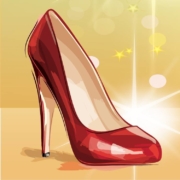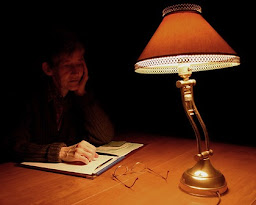Rejection – Pain or Gain?
Rejection
– Pain or Gain?
Writers
tend to be over-the-moon when they receive acceptances, but how do they feel
when the response is a rejection? Here’s what members of the Stiletto Gang say:
Debra
H. Goldstein – In the beginning of my writing career, I’d go into a blue
funk for hours or days and wasn’t the nicest person to be around. Now, I go
into a milder state of depression but immediately start thinking of how I can
improve the piece and what other market it might be right for. In both
instances where my books, which were intended to be the first in a series were
orphaned, I decided they were standalones and started writing something else.
Juliana Aragon Fatula – Being orphaned, literally took me a few years
to adjust to being the grown up and not the kid. I struggled with rejection in
the same way I dealt with auditions when I was acting. I looked at it as an
experience, a learning guide to grow from and never expected to get cast,
published, etc. so I would be thrilled if I was accepted and not destroyed if
rejected. I coped.
Dru Ann Love – I
just move on when an author does not respond to a musing I personally sent
them. Let’s me know not to do a musing for them again.
Debra
Sennefelder – Rejection is so
hard. I’ve learned that it’s okay to feel all the feelings that rejection
brings, so I give myself a short period of time to deal with the rejection.
Then I analyze what happened and see what I can learn from it.
Sparkle Abbey:
Mary Lee Ashford – I think for me all the years of rejections
before selling helped me toughen up. It’s hard, no doubt. But it happens and
you have to take a deep breath, figure out what’s next and keep moving
forward.
Anita Carter – I won’t lie or play it down, rejection always hurts. That said,
I try to just take a day or less to work through whatever feelings I’m
experiencing and then push forward.
Paula Gail Benson – Much better in hindsight than when they occur. Rejection always
stings, but usually my stories that have been rejected end up in a better place
than the one where I originally submitted them.
Lynn
McPherson – Rejections are tough but if I like what I’ve written it usually
doesn’t faze me too long.
Shari
Randall – My reaction to rejection is to keep pitching. I channel the
mantra from Galaxy Quest, Never give up, never surrender! Then
I cry into a gallon of chocolate chocolate chip ice cream and a big ol
glass of red wine.
Kathryn Lane – Not good
with rejections, but I’m learning to take them more philosophically.
T.K. Thorne – I have a
stuffed legal folder of rejections. My way of handling the negative emotions
that go along with them are to immediately get to work on something. But now
that I am published with several books out, my skin is much thicker, and I quit
feeling that a rejection is a commentary on my talent or ability. Most of the time….
Robin Hillyer-Miles – As a graphic designer for years, I’ve learned that sometimes
rejections mean you need to take a fresh look at your work. Maybe even put it
away for a bit so you aren’t so attached.
Julie Mulhern – Rejection is
part of the job. And it’s not personal. I don’t like sushi. You could take me
to the best sushi restaurant on the planet, and I wouldn’t like the food. That
preference has nothing to do with the quality of the raw fish (yuck). Not
everyone will like what I write. It has nothing to do with the quality of my
books. If someone likes angst-ridden, steamy romance, they won’t like Ellison
or Poppy.





I certainly understand the pain. How wonderful to you all for moving beyond it and pressing on until you get a yes.
Thanks you, Mark. Part of being a writer is learning to dance at the yes answers and move on from rejections.